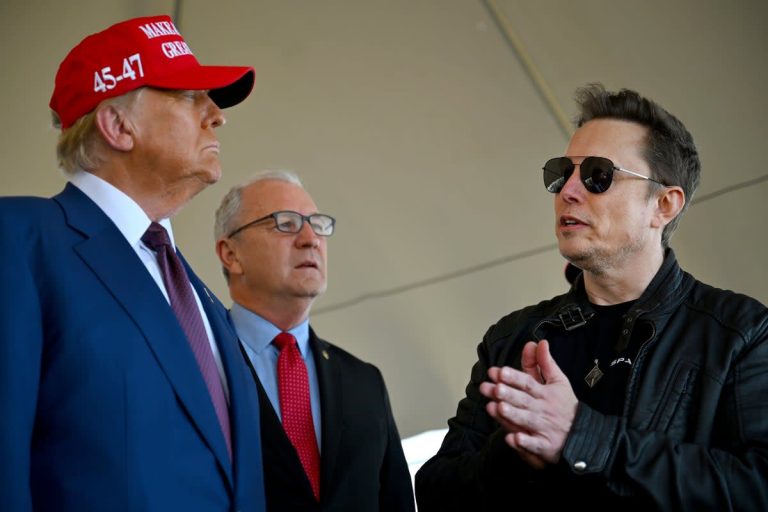Summary
- Trump rejects the bipartisan U.S. spending bill.
- He urges Republicans who support the current package to face challengers in primaries.
- The next steps are uncertain as the risk of a government shutdown increases.
WASHINGTON, Dec 19 (Reuters) – U.S. Congress has only two days to prevent a partial government shutdown as President-elect Donald Trump rejected a bipartisan federal spending deal. Trump is demanding that lawmakers address the nation’s debt ceiling before he takes office next month. With a government funding deadline of midnight Friday (0500 GMT Saturday) fast approaching, lawmakers must act quickly to avoid a shutdown.
Trump has urged his fellow Republicans in Congress to oppose a stopgap bill that would extend government funding beyond the looming deadline. He criticized the bipartisan deal, pushing his party members to reject the measure and insisting they focus on the debt ceiling issue instead.
The president-elect further threatened political consequences for Republicans who support the bill, suggesting they should face primary challenges in the 2026 midterm elections. His words aim to pressure GOP members into falling in line with his agenda and opposing the spending plan that he believes is insufficient.
With the deadline closing in, Congress is now under significant pressure to reach a resolution that prevents the shutdown and addresses Trump’s demands. The coming days will be crucial as lawmakers work to avoid the financial crisis and fulfill the president-elect’s expectations.
That threat prompted House Speaker Mike Johnson and his leadership team to reassess their strategy. They returned to the drawing board, searching for a new compromise bill that could secure the support of their slim 219-211 majority while also passing through the Senate, where Democrats hold a 51-49 edge.
Without congressional action, the U.S. government faces a partial shutdown beginning Saturday. This shutdown would disrupt funding for essential services, including air travel and law enforcement, just days before the Dec. 25 Christmas holiday.
“Any Republican who would be foolish enough to do this should, and will, face a primary challenge,” Trump wrote on his Truth Social platform.
If a shutdown occurs, it would be the first since the one that stretched from December 2018 into 2019 during Trump’s first term in the White House.
Now, Trump is urging Congress to pass legislation that would address key issues before he takes office next month. This includes extending the government’s borrowing authority—a politically challenging task—as well as securing government funding.
Congress established a limit on the amount the government can borrow in 1939, with the goal of curbing the growth of federal debt. However, it has not fulfilled that objective—federal debt has now surged to $36 trillion, driven by spending supported by Democrats, tax cuts backed by Republicans, and the escalating cost of the Social Security retirement program.
The debt ceiling has become a recurring point of contention in Washington, leading to periodic standoffs. As a result, the nation occasionally faces the risk of a devastating default, which could disrupt global markets.
MUSK FACTOR
Trump also called on lawmakers to remove provisions from the bipartisan deal supported by Democrats, whose votes will be necessary to pass the bill.
Trump’s ally, Elon Musk, the world’s richest person, who has been tasked by Trump with trimming the federal budget, pressured Congress to reject the bill. Musk further urged that any lawmakers who support it should be voted out of office.
The bipartisan bill would maintain government funding at current levels, allocate $100 billion for disaster relief, and provide $10 billion in farm aid. It also includes a variety of unrelated provisions, such as a pay raise for lawmakers and a crackdown on hidden hotel fees.
“It is reckless for House Republicans to have yielded to the demands of the world’s richest man, who was not elected by anyone, especially after leaders from both parties reached an agreement to fund the government and provide disaster aid,” said Representative Rosa DeLauro, the top Democrat on the House Appropriations Committee, in a statement on Thursday.
TALKS CONTINUED LATE INTO THE NIGHT
After a meeting on Wednesday evening with Vice President-elect JD Vance and other top Republican leaders, Speaker Johnson described the conversation as “productive” but did not provide further details.
“I’m not going to say anything else tonight because we are in the middle of these negotiations,” Johnson said.
When asked if raising the debt ceiling would be part of the ongoing discussions, House Republican leader Steve Scalise responded that lawmakers were “not there yet.”
House Appropriations Committee Chair Tom Cole, who was also present at the meeting, was asked about the likelihood of avoiding a government shutdown. He replied, “I’m not confident of anything.”
The House Republican majority has been increasingly restless over the past two years, especially after Johnson’s predecessor, Kevin McCarthy, was ousted due to dissatisfaction with a government funding bill. Johnson has often had to rely on Democrats to pass legislation when unable to secure enough votes from his own party.
Hardline Republican Marjorie Taylor Greene suggested Johnson’s leadership could be in jeopardy, stating, “WE MUST STAND FIRM WITH THE AMERICAN PEOPLE TO STOP THE MADNESS!! No matter what. Even if we have to elect new leadership,” she wrote on X.
NEXT STEPS REMAIN UNCLEAR
The next steps for Congress remain uncertain. A bipartisan agreement will be necessary to pass any spending bill through both the House and the Senate, where Democrats currently hold a slim majority.
The stopgap measure is required because Congress has failed to pass regular spending legislation for the fiscal year that began on October 1. It does not include funding for benefit programs like Social Security, which continue automatically.
For over 20 years, the U.S. government has spent more than it has earned, with Democrats expanding health programs and Republicans implementing tax cuts.

